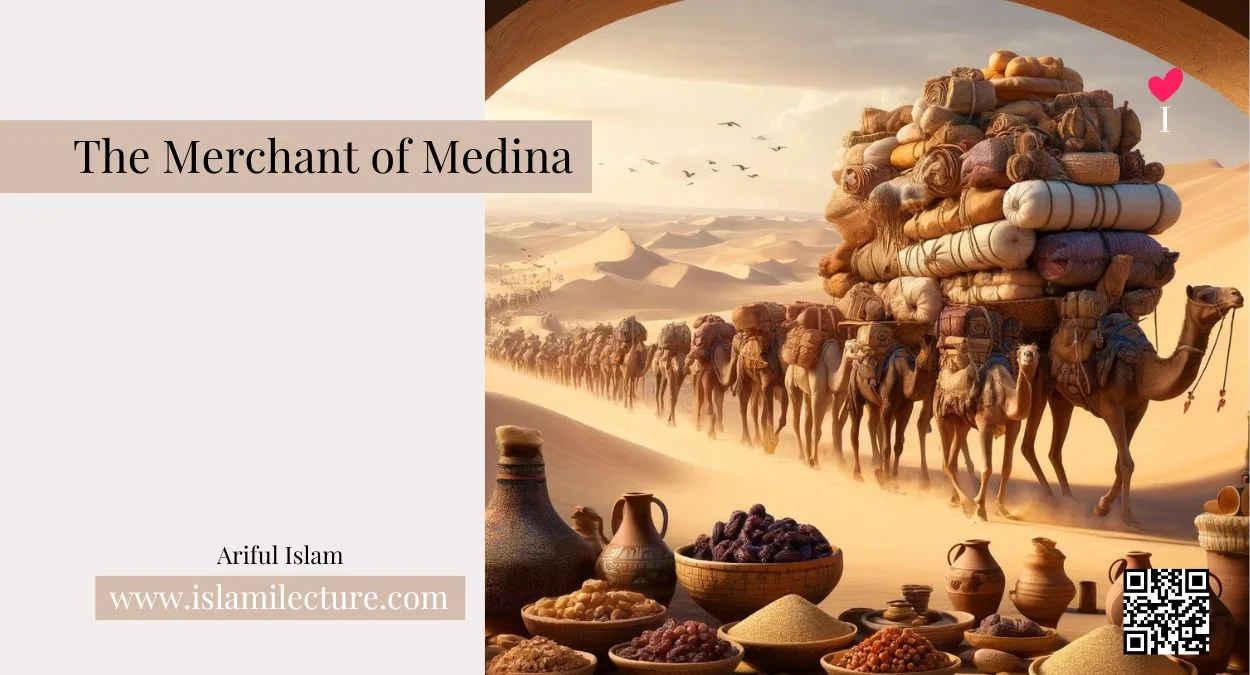The Merchant of Medina

During Abu Bakr’s caliphate, Medina faced a severe drought and famine, causing hardship due to food scarcity. Uthman Ibn Affan (may Allah be pleased with him) arrived in the city with a caravan carrying 100 loads of merchandise.
Upon his arrival, members of the business community in Medina expressed their eagerness to purchase goods from Uthman (may Allah be pleased with him). They saw an opportunity to profit from the desperate situation, knowing that the scarcity of goods would allow them to set higher prices and make significant profits.
Curious about the potential profits, Uthman (may Allah be pleased with him) asked the businessmen, “How much profit will you give me?”
In response, they offered, “Twelve at the rate of ten.”
Uthman (may Allah be pleased with him) was not satisfied. The businessmen, raising the price, said, “Fifteen at the rate of ten.”
Uthman (may Allah be pleased with him) challenged them further, asking,
“Can you give me a hundred at the rate of ten?”
Essentially, he was proposing a tenfold increase in the price of his goods.
The businessmen were taken aback by Uthman’s bold request. They were surprised that he would suggest such a steep increase in prices. Realizing that they could not meet his demands, Uthman (may Allah be pleased with him) declared, “So, whoever can give me a hundred at the rate of ten, I will sell my goods to him.”
With this statement, Uthman (may Allah be pleased with him) made it clear that he was not interested in profiting from the dire circumstances facing the people of Medina. Instead, he intended to use his goods to benefit those in need. He declared,
“By bearing witness to Allah, I have given all my products to the needy Muslims.”1
Uthman’s devotion to serving Islam knew no bounds. Despite his wealth, he willingly donated all his goods for the sake of Allah during that challenging time, hoping for a tenfold reward from the Almighty.
His generosity extended beyond material possessions. Uthman (may Allah be pleased with him) made substantial contributions to the service of Islam, equivalent to several billion dollars in today’s context.
Moreover, Uthman’s commitment to charity was unwavering. Every Friday, upon embracing Islam, he would emancipate a slave, ultimately freeing a total of 2400 slaves!2
- Dr. Ali Muhammad al-Sallabi, ʻUthmân Ibn ʻAffân: His Life and Times, 100 ↩︎
- Dr. Ali Muhammad al-Sallabi, ʻUthmân Ibn ʻAffân: His Life and Times, 182 ↩︎







